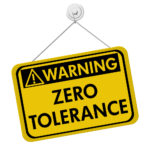Category Archives: Sexual Harassment

When A Supervisor Makes Employment Decisions Based On A Sexual Harassment Victim’s Submission To Or Rejection Of Sexual Behavior
Title VII of the Civil Rights Act of 1964 (Title VII) makes sexual harassment an unlawful employment practice. In making sexual harassment unlawful, Title VII entitles employees to work free from sexual intimidation or coercion, including quid pro quo sexual harassment. According to the U.S. Equal Employment Opportunity Commission, quid pro quo sexual harassment… Read More »

Court Finds That Employees Are Protected From Retaliation When Complaining About Customer Sexual Harassment
Title VII of the Civil Rights Act of 1964 (Title VII) protects employees from sexual harassment in the workplace. Title VII protects employees from sexual harassment by co-employees, supervisors, managers, owners, clients and customers. Under Title VII, employers are also prohibited from retaliating against employees when they complain about sexual harassment in the workplace…. Read More »

Appellate Court Rules That Employers Are Strictly Liable For Supervisor Sexual Harassment Involving Unfulfilled Threats Or Promises
Title VII of the Civil Rights Act of 1964 (Title VII) prohibits employers from discriminating employees on the basis of sex. Sexual harassment is a form of sex discrimination prohibited by Title VII. Having long represented victims of sexual harassment, our Central Florida sexual harassment attorneys have learned that quid pro quo is perhaps… Read More »

Court Finds Victim’s Verbal Sexual Harassment Complaint Satisfies Company Policy Requiring The Filing Of A Sexual Harassment Complaint
Under Title VII of the Civil Rights Act of 1964 (Title VII), employers are liable for sexual harassment which is sufficiently severe or pervasive to create a hostile work environment. As explained by the U.S. Eleventh Circuit Court of Appeals in Dees v. Johnson Controls World Services, Inc., 163 F.3d 417 (11th Cir. 1999),… Read More »

Employers Must Publicize & Train Employees On Their Sexual Harassment Policy
Title VII of the Civil Rights Act of 1964 makes sexual harassment in the workplace unlawful. In order to eradiate sexual harassment in the workplace, as the U.S. Supreme Court in Burlington Indus., Inc. v. Ellerth, 524 U.S. 742 (1998) determined, “Title VII is designed to encourage the creation of anti-harassment policies and effective… Read More »

Appellate Court Rejects Employer’s Attempt To Portray Same-Sex Sexual Harassment As Mere Horseplay
Title VII of the Civil Rights Act of 1964 (Title VII) protects employees from sexual harassing behavior in the workplace which is sufficiently severe or pervasive to create a hostile work environment. Unlawful sexual harassment under Title VII is not limited to harassment from members of the opposite sex. Instead, Title VII also makes… Read More »

Both Men And Women Are Protected From Sexual Harassment At Work
Title VII of the Civil Rights Act of 1964 (Title VII) makes sexual harassment which is sufficiently severe or pervasive to alter the terms and conditions of the victim’s employment and create a hostile work environment unlawful. Having litigated sexual harassment cases for more than 15 years, our Central Florida sexual harassment attorneys have… Read More »

Sexual Harassment Victim Claims Constructive Discharge Where Employer Told Him To Deal With It Or Quit
Title VII of the Civil Rights Act of 1964 (Title VII), which is federal law, protects employees from sexual and racial harassment in the workplace which is sufficiently severe or pervasive to create a hostile work environment. When an employee endures hostile work environment harassment, the employee’s abusive work environment sometimes gives rise to… Read More »

Federal Court Rules That A Reasonable Jury Could Find That State Court Judge Subjected Employee To Sexual Harassment
A common myth associated with sexual harassment is that individuals who engage in sexual harassment in the workplace are almost exclusively low-level hourly employees. In perpetuating this self-serving myth, companies endeavor to portray themselves as helpless victims of behavior by employees they are unable to control. Having represented sexual harassment victims for more than… Read More »

When A Sexual Harassment Victim Makes A Complaint Employers Must Take Remedial Action
In Fuller v. City of Oakland, Cal., 47 F.3d 1522 (9th Cir. 1995), the U.S. Ninth Circuit Court of Appeals explained that “[o]nce an employer knows or should know of [sexual] harassment, a remedial obligation kicks in” and “[t]hat obligation will not be discharged until action—prompt, effective action—has been taken.” The remedial action taken… Read More »


 Close Menu
Close Menu